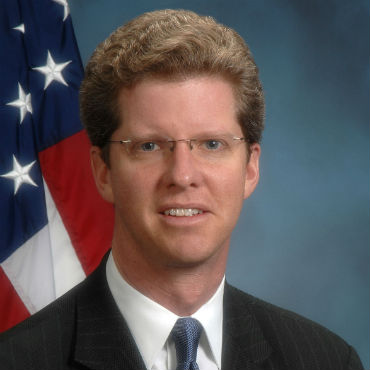Donovan to Congress: Data Act implementation isn't free
The OMB director also asked House appropriators to boost funding for the U.S. Digital Service.

OMB Director Shaun Donovan told Congress that Data Act implementation is a "major undertaking" that requires more staff.
Office of Management and Budget Director Shaun Donovan is seeking a funding boost from Congress to meet new demands placed on his agency, including those related to cybersecurity, IT delivery and implementation of the Data Act.
In testimony before a House appropriations subcommittee, Donovan said the Data Act, which mandates the publication of federal spending information in machine-readable form, "can lead to some real improvements in the way we account for government spending." The law, however, does not have a funding mechanism, despite putting the burden of implementation on OMB and the Treasury Department.
Implementation is a "major undertaking," Donovan said. Therefore, OMB is seeking additional staff and $1 million to spend on contractors who will help with implementation.
"OMB will need to develop software that can maximize data quality, minimize future workload and leverage existing processes to improve reporting," Donovan said. "This approach is necessary for addressing the unique challenges presented by Data Act requirements and current system limitations."
OMB is also seeking a $35 million for its Information Technology Oversight and Reform (ITOR) account -- a $15 million increase. Among other things, the new funds will support expansion of the U.S. Digital Service, with 71 additional people expected to join the current staff of 41.
Rep. Ander Crenshaw (R-Fla.), chairman of the appropriations subcommittee that funds OMB, was concerned about both the size of the requested increase and OMB's ability to support the pace of hiring and integrating new IT experts.
"It's a pretty big increase," Crenshaw said. "It might be difficult for us to provide you those funds."
Donovan stressed that the Digital Service and ITOR efforts to improve IT delivery are big money-savers. He cited $2.5 billion in cost savings and avoidance as a result of ITOR efforts since the program's inception, as well as specific savings experienced during the pilot phase of the Digital Service.
"We think this can have a big impact on savings," Donovan said, adding that contracting costs have started to come down for the first time in more than a decade.
In the coming fiscal year, OMB will use ITOR funding to focus on expanding a governmentwide approach to hardware acquisition and software licensing. The goal is to bring the scale of the government's buying power to bear on suppliers by eliminating redundant and overlapping purchases, and negotiating prices as a single entity.
"We act too much right now like many, many different agencies as opposed to one federal government," Donovan said, noting that the United Kingdom has used a similar approach to trim 10 percent to 15 percent from its IT contracting spending.
"We think it's a very promising direction to go, to take what we're doing [in category management] and expand it significantly," Donovan said. "We think we have the potential to drive the way the federal government uses IT to a much better place, much closer to the private sector, with these investments."






